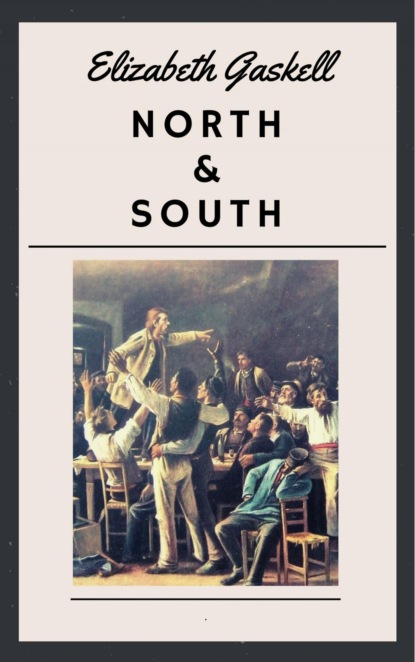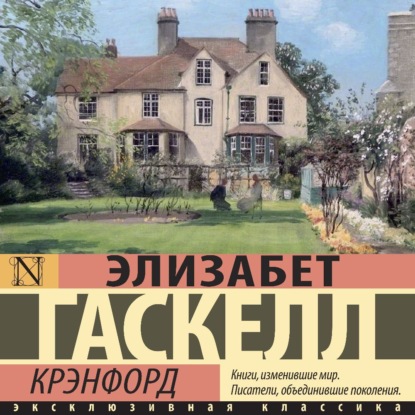
Полная версия:
Элизабет Гаскелл Ruth
- + Увеличить шрифт
- - Уменьшить шрифт

Elizabeth Gaskell
Ruth
© T8RUGRAM, 2018
© Original, 2018
Chapter I
The Dressmaker's Apprentice at Work
There is an assize-town in one of the eastern counties which was much distinguished by the Tudor sovereigns, and, in consequence of their favour and protection, attained a degree of importance that surprises the modern traveller.
A hundred years ago its appearance was that of picturesque grandeur. The old houses, which were the temporary residences of such of the county-families as contented themselves with the gaieties of a provincial town, crowded the streets and gave them the irregular but noble appearance yet to be seen in the cities of Belgium. The sides of the streets had a quaint richness, from the effect of the gables, and the stacks of chimneys which cut against the blue sky above; while, if the eye fell lower down, the attention was arrested by all kinds of projections in the shape of balcony and oriel; and it was amusing to see the infinite variety of windows that had been crammed into the walls long before Mr Pitt's days of taxation. The streets below suffered from all these projections and advanced stories above; they were dark, and ill-paved with large, round, jolting pebbles, and with no side-path protected by kerb-stones; there were no lamp-posts for long winter nights; and no regard was paid to the wants of the middle class, who neither drove about in coaches of their own, nor were carried by their own men in their own sedans into the very halls of their friends. The professional men and their wives, the shopkeepers and their spouses, and all such people, walked about at considerable peril both night and day. The broad unwieldy carriages hemmed them up against the houses in the narrow streets. The inhospitable houses projected their flights of steps almost into the carriage-way, forcing pedestrians again into the danger they had avoided for twenty or thirty paces. Then, at night, the only light was derived from the glaring, flaring oil-lamps hung above the doors of the more aristocratic mansions; just allowing space for the passers-by to become visible, before they again disappeared into the darkness, where it was no uncommon thing for robbers to be in waiting for their prey.
The traditions of those bygone times, even to the smallest social particular, enable one to understand more clearly the circumstances which contributed to the formation of character. The daily life into which people are born, and into which they are absorbed before they are well aware, forms chains which only one in a hundred has moral strength enough to despise, and to break when the right time comes – when an inward necessity for independent individual action arises, which is superior to all outward conventionalities. Therefore it is well to know what were the chains of daily domestic habit which were the natural leading-strings of our forefathers before they learnt to go alone.
The picturesqueness of those ancient streets has departed now. The Astleys, the Dunstans, the Waverhams – names of power in that district – go up duly to London in the season, and have sold their residences in the county-town fifty years ago, or more. And when the county-town lost its attraction for the Astleys, the Dunstans, the Waverhams, how could it be supposed that the Domvilles, the Bextons, and the Wildes would continue to go and winter there in their second-rate houses, and with their increased expenditure? So the grand old houses stood empty awhile; and then speculators ventured to purchase, and to turn the deserted mansions into many smaller dwellings, fitted for professional men, or even (bend your ear lower, lest the shade of Marmaduke, first Baron Waverham, hear) into shops!
Even that was not so very bad, compared with the next innovation on the old glories. The shopkeepers found out that the once fashionable street was dark, and that the dingy light did not show off their goods to advantage; the surgeon could not see to draw his patient's teeth; the lawyer had to ring for candles an hour earlier than he was accustomed to do when living in a more plebeian street. In short, by mutual consent, the whole front of one side of the street was pulled down, and rebuilt in the flat, mean, unrelieved style of George the Third. The body of the houses was too solidly grand to submit to alteration; so people were occasionally surprised, after passing through a commonplace-looking shop, to find themselves at the foot of a grand carved oaken staircase, lighted by a window of stained glass, storied all over with armorial bearings.
Up such a stair – past such a window (through which the moonlight fell on her with a glory of many colours) – Ruth Hilton passed wearily one January night, now many years ago. I call it night; but, strictly speaking, it was morning. Two o'clock in the morning chimed forth the old bells of St Saviour's. And yet more than a dozen girls still sat in the room into which Ruth entered, stitching away as if for very life, not daring to gape, or show any outward manifestation of sleepiness. They only sighed a little when Ruth told Mrs Mason the hour of the night, as the result of her errand; for they knew that, stay up as late as they might, the work-hours of the next day must begin at eight, and their young limbs were very weary.
Mrs Mason worked away as hard as any of them; but she was older and tougher; and, besides, the gains were hers. But even she perceived that some rest was needed. "Young ladies! there will be an interval allowed of half an hour. Ring the bell, Miss Sutton. Martha shall bring you up some bread and cheese and beer. You will be so good as to eat it standing – away from the dresses – and to have your hands washed ready for work when I return. In half an hour," said she once more, very distinctly; and then she left the room.
It was curious to watch the young girls as they instantaneously availed themselves of Mrs Mason's absence. One fat, particularly heavy-looking damsel laid her head on her folded arms and was asleep in a moment; refusing to be wakened for her share in the frugal supper, but springing up with a frightened look at the sound of Mrs Mason's returning footstep, even while it was still far off on the echoing stairs. Two or three others huddled over the scanty fireplace, which, with every possible economy of space, and no attempt whatever at anything of grace or ornament, was inserted in the slight, flat-looking wall, that had been run up by the present owner of the property to portion off this division of the grand old drawing-room of the mansion. Some employed the time in eating their bread and cheese, with as measured and incessant a motion of the jaws (and almost as stupidly placid an expression of countenance), as you may see in cows ruminating in the first meadow you happen to pass.
Some held up admiringly the beautiful ball-dress in progress, while others examined the effect, backing from the object to be criticised in the true artistic manner. Others stretched themselves into all sorts of postures to relieve the weary muscles; one or two gave vent to all the yawns, coughs, and sneezes that had been pent up so long in the presence of Mrs Mason. But Ruth Hilton sprang to the large old window, and pressed against it as a bird presses against the bars of its cage. She put back the blind, and gazed into the quiet moonlight night. It was doubly light – almost as much so as day – for everything was covered with the deep snow which had been falling silently ever since the evening before. The window was in a square recess; the old strange little panes of glass had been replaced by those which gave more light. A little distance off, the feathery branches of a larch waved softly to and fro in the scarcely perceptible night-breeze. Poor old larch! the time had been when it had stood in a pleasant lawn, with the tender grass creeping caressingly up to its very trunk; but now the lawn was divided into yards and squalid back premises, and the larch was pent up and girded about with flag-stones. The snow lay thick on its boughs, and now and then fell noiselessly down. The old stables had been added to, and altered into a dismal street of mean-looking houses, back to back with the ancient mansions. And over all these changes from grandeur to squalor, bent down the purple heavens with their unchanging splendour!
Ruth pressed her hot forehead against the cold glass, and strained her aching eyes in gazing out on the lovely sky of a winter's night. The impulse was strong upon her to snatch up a shawl, and wrapping it round her head, to sally forth and enjoy the glory; and time was when that impulse would have been instantly followed; but now, Ruth's eyes filled with tears, and she stood quite still, dreaming of the days that were gone. Some one touched her shoulder while her thoughts were far away, remembering past January nights, which had resembled this, and were yet so different.
"Ruth, love," whispered a girl who had unwillingly distinguished herself by a long hard fit of coughing, "come and have some supper. You don't know yet how it helps one through the night."
"One run – one blow of the fresh air would do me more good," said Ruth.
"Not such a night as this," replied the other, shivering at the very thought.
"And why not such a night as this, Jenny?" answered Ruth. "Oh! at home I have many a time run up the lane all the way to the mill, just to see the icicles hang on the great wheel; and when I was once out, I could hardly find in my heart to come in, even to mother, sitting by the fire; – even to mother," she added, in a low, melancholy tone, which had something of inexpressible sadness in it. "Why, Jenny!" said she, rousing herself, but not before her eyes were swimming with tears, "own, now, that you never saw those dismal, hateful, tumble-down old houses there look half so – what shall I call them? almost beautiful – as they do now, with that soft, pure, exquisite covering; and if they are so improved, think of what trees, and grass, and ivy must be on such a night as this."
Jenny could not be persuaded into admiring the winter's night, which to her came only as a cold and dismal time, when her cough was more troublesome, and the pain in her side worse than usual. But she put her arm round Ruth's neck, and stood by her, glad that the orphan apprentice, who was not yet inured to the hardship of a dressmaker's workroom, should find so much to give her pleasure in such a common occurrence as a frosty night.
They remained deep in separate trains of thought till Mrs Mason's step was heard, when each returned, supperless but refreshed, to her seat.
Ruth's place was the coldest and the darkest in the room, although she liked it the best; she had instinctively chosen it for the sake of the wall opposite to her, on which was a remnant of the beauty of the old drawing-room, which must once have been magnificent, to judge from the faded specimen left. It was divided into panels of pale sea-green, picked out with white and gold; and on these panels were painted – were thrown with the careless, triumphant hand of a master – the most lovely wreaths of flowers, profuse and luxuriant beyond description, and so real-looking, that you could almost fancy you smelt their fragrance, and heard the south wind go softly rustling in and out among the crimson roses – the branches of purple and white lilac – the floating golden-tressed laburnum boughs. Besides these, there were stately white lilies, sacred to the Virgin – hollyhocks, fraxinella, monk's-hood, pansies, primroses; every flower which blooms profusely in charming old-fashioned country gardens was there, depicted among its graceful foliage, but not in the wild disorder in which I have enumerated them. At the bottom of the panel lay a holly-branch, whose stiff straightness was ornamented by a twining drapery of English ivy and mistletoe and winter aconite; while down either side hung pendant garlands of spring and autumn flowers; and, crowning all, came gorgeous summer with the sweet musk-roses, and the rich-coloured flowers of June and July.
Surely Monnoyer, or whoever the dead and gone artist might be, would have been gratified to know the pleasure his handiwork, even in its wane, had power to give to the heavy heart of a young girl; for they conjured up visions of other sister-flowers that grew, and blossomed, and withered away in her early home.
Mrs Mason was particularly desirous that her workwomen should exert themselves to-night, for, on the next, the annual hunt-ball was to take place. It was the one gaiety of the town since the assize-balls had been discontinued. Many were the dresses she had promised should be sent home "without fail" the next morning; she had not let one slip through her fingers, for fear, if it did, it might fall into the hands of the rival dressmaker, who had just established herself in the very same street.
She determined to administer a gentle stimulant to the flagging spirits, and with a little preliminary cough to attract attention, she began:
"I may as well inform you, young ladies, that I have been requested this year, as on previous occasions, to allow some of my young people to attend in the ante-chamber of the assembly-room with sandal ribbon, pins, and such little matters, and to be ready to repair any accidental injury to the ladies' dresses. I shall send four – of the most diligent." She laid a marked emphasis on the last words, but without much effect; they were too sleepy to care for any of the pomps and vanities, or, indeed, for any of the comforts of this world, excepting one sole thing – their beds.
Mrs Mason was a very worthy woman, but, like many other worthy women, she had her foibles; and one (very natural to her calling) was to pay an extreme regard to appearances. Accordingly, she had already selected in her own mind the four girls who were most likely to do credit to the "establishment;" and these were secretly determined upon, although it was very well to promise the reward to the most diligent. She was really not aware of the falseness of this conduct; being an adept in that species of sophistry with which people persuade themselves that what they wish to do is right.
At last there was no resisting the evidence of weariness. They were told to go to bed; but even that welcome command was languidly obeyed. Slowly they folded up their work, heavily they moved about, until at length all was put away, and they trooped up the wide, dark staircase.
"Oh! how shall I get through five years of these terrible nights! in that close room! and in that oppressive stillness! which lets every sound of the thread be heard as it goes eternally backwards and forwards," sobbed out Ruth, as she threw herself on her bed, without even undressing herself.
"Nay, Ruth, you know it won't be always as it has been to-night. We often get to bed by ten o'clock; and by-and-by you won't mind the closeness of the room. You're worn out to-night, or you would not have minded the sound of the needle; I never hear it. Come, let me unfasten you," said Jenny.
"What is the use of undressing? We must be up again and at work in three hours."
"And in those three hours you may get a great deal of rest, if you will but undress yourself and fairly go to bed. Come, love."
Jenny's advice was not resisted; but before Ruth went to sleep, she said:
"Oh! I wish I was not so cross and impatient. I don't think I used to be."
"No, I am sure not. Most new girls get impatient at first; but it goes off, and they don't care much for anything after awhile. Poor child! she's asleep already," said Jenny to herself.
She could not sleep or rest. The tightness at her side was worse than usual. She almost thought she ought to mention it in her letters home; but then she remembered the premium her father had struggled hard to pay, and the large family, younger than herself, that had to be cared for, and she determined to bear on, and trust that when the warm weather came both the pain and the cough would go away. She would be prudent about herself.
What was the matter with Ruth? She was crying in her sleep as if her heart would break. Such agitated slumber could be no rest; so Jenny wakened her.
"Ruth! Ruth!"
"Oh, Jenny!" said Ruth, sitting up in bed, and pushing back the masses of hair that were heating her forehead, "I thought I saw mamma by the side of the bed, coming, as she used to do, to see if I were asleep and comfortable; and when I tried to take hold of her, she went away and left me alone – I don't know where; so strange!"
"It was only a dream; you know you'd been talking about her to me, and you're feverish with sitting up late. Go to sleep again, and I'll watch, and waken you if you seem uneasy."
"But you'll be so tired. Oh, dear! dear!" Ruth was asleep again, even while she sighed.
Morning came, and though their rest had been short, the girls arose refreshed.
"Miss Sutton, Miss Jennings, Miss Booth, and Miss Hilton, you will see that you are ready to accompany me to the shire-hall by eight o'clock."
One or two of the girls looked astonished, but the majority, having anticipated the selection, and knowing from experience the unexpressed rule by which it was made, received it with the sullen indifference which had become their feeling with regard to most events – a deadened sense of life, consequent upon their unnatural mode of existence, their sedentary days, and their frequent nights of late watching.
But to Ruth it was inexplicable. She had yawned, and loitered, and looked off at the beautiful panel, and lost herself in thoughts of home, until she fully expected the reprimand which at any other time she would have been sure to receive, and now, to her surprise, she was singled out as one of the most diligent!
Much as she longed for the delight of seeing the noble shire-hall – the boast of the county – and of catching glimpses of the dancers, and hearing the band; much as she longed for some variety to the dull, monotonous life she was leading, she could not feel happy to accept a privilege, granted, as she believed, in ignorance of the real state of the case; so she startled her companions by rising abruptly and going up to Mrs Mason, who was finishing a dress which ought to have been sent home two hours before:
"If you please, Mrs Mason, I was not one of the most diligent; I am afraid – I believe – I was not diligent at all. I was very tired; and I could not help thinking, and when I think, I can't attend to my work." She stopped, believing she had sufficiently explained her meaning; but Mrs Mason would not understand, and did not wish for any further elucidation.
"Well, my dear, you must learn to think and work too; or, if you can't do both, you must leave off thinking. Your guardian, you know, expects you to make great progress in your business, and I am sure you won't disappoint him."
But that was not to the point. Ruth stood still an instant, although Mrs Mason resumed her employment in a manner which any one but a "new girl" would have known to be intelligible enough, that she did not wish for any more conversation just then.
"But as I was not diligent I ought not to go, ma'am. Miss Wood was far more industrious than I, and many of the others."
"Tiresome girl!" muttered Mrs Mason; "I've half a mind to keep her at home for plaguing me so." But, looking up, she was struck afresh with the remarkable beauty which Ruth possessed; such a credit to the house, with her waving outline of figure, her striking face, with dark eyebrows and dark lashes, combined with auburn hair and a fair complexion. No! diligent or idle, Ruth Hilton must appear to-night.
"Miss Hilton," said Mrs Mason, with stiff dignity, "I am not accustomed (as these young ladies can tell you) to have my decisions questioned. What I say, I mean; and I have my reasons. So sit down, if you please, and take care and be ready by eight. Not a word more," as she fancied she saw Ruth again about to speak.
"Jenny! you ought to have gone, not me," said Ruth, in no low voice to Miss Wood, as she sat down by her.
"Hush! Ruth. I could not go if I might, because of my cough. I would rather give it up to you than any one, if it were mine to give. And suppose it is, and take the pleasure as my present, and tell me every bit about it when you come home to-night."
"Well! I shall take it in that way, and not as if I'd earned it, which I haven't. So thank you. You can't think how I shall enjoy it now. I did work diligently for five minutes last night, after I heard of it, I wanted to go so much. But I could not keep it up. Oh, dear! and I shall really hear a band! and see the inside of that beautiful shire-hall!"
Chapter II
Ruth Goes to the Shire-Hall
In due time that evening, Mrs Mason collected "her young ladies" for an inspection of their appearance before proceeding to the shire-hall. Her eager, important, hurried manner of summoning them was not unlike that of a hen clucking her chickens together; and to judge from the close investigation they had to undergo, it might have been thought that their part in the evening's performance was to be far more important than that of temporary ladies'-maids.
"Is that your best frock, Miss Hilton?" asked Mrs Mason, in a half-dissatisfied tone, turning Ruth about; for it was only her Sunday black silk, and was somewhat worn and shabby.
"Yes, ma'am," answered Ruth, quietly.
"Oh! indeed. Then it will do" (still the half-satisfied tone). "Dress, young ladies, you know, is a very secondary consideration. Conduct is everything. Still, Miss Hilton, I think you should write and ask your guardian to send you money for another gown. I am sorry I did not think of it before."
"I do not think he would send any if I wrote," answered Ruth, in a low voice. "He was angry when I wanted a shawl, when the cold weather set in."
Mrs Mason gave her a little push of dismissal, and Ruth fell into the ranks by her friend, Miss Wood.
"Never mind, Ruthie; you're prettier than any of them," said a merry, good-natured girl, whose plainness excluded her from any of the envy of rivalry.
"Yes! I know I am pretty," said Ruth, sadly, "but I am sorry I have no better gown, for this is very shabby. I am ashamed of it myself, and I can see Mrs Mason is twice as much ashamed. I wish I need not go. I did not know we should have to think about our own dress at all, or I should not have wished to go."
"Never mind, Ruth," said Jenny, "you've been looked at now, and Mrs Mason will soon be too busy to think about you and your gown."
"Did you hear Ruth Hilton say she knew she was pretty?" whispered one girl to another, so loudly that Ruth caught the words.
"I could not help knowing," answered she, simply, "for many people have told me so."
At length these preliminaries were over, and they were walking briskly through the frosty air; the free motion was so inspiriting that Ruth almost danced along, and quite forgot all about shabby gowns and grumbling guardians. The shire-hall was even more striking than she had expected. The sides of the staircase were painted with figures that showed ghostly in the dim light, for only their faces looked out of the dark, dingy canvas, with a strange fixed stare of expression.
The young milliners had to arrange their wares on tables in the ante-room, and make all ready before they could venture to peep into the ball-room, where the musicians were already tuning their instruments, and where one or two char-women (strange contrast! with their dirty, loose attire, and their incessant chatter, to the grand echoes of the vaulted room) were completing the dusting of benches and chairs.
They quitted the place as Ruth and her companions entered. They had talked lightly and merrily in the ante-room, but now their voices were hushed, awed by the old magnificence of the vast apartment. It was so large, that objects showed dim at the further end, as through a mist. Full-length figures of county worthies hung around, in all varieties of costume, from the days of Holbein to the present time. The lofty roof was indistinct, for the lamps were not fully lighted yet; while through the richly-painted Gothic window at one end the moonbeams fell, many-tinted, on the floor, and mocked with their vividness the struggles of the artificial light to illuminate its little sphere.
High above sounded the musicians, fitfully trying some strain of which they were not certain. Then they stopped playing and talked, and their voices sounded goblin-like in their dark recess, where candles were carried about in an uncertain wavering manner, reminding Ruth of the flickering zigzag motion of the will-o'-the-wisp.





